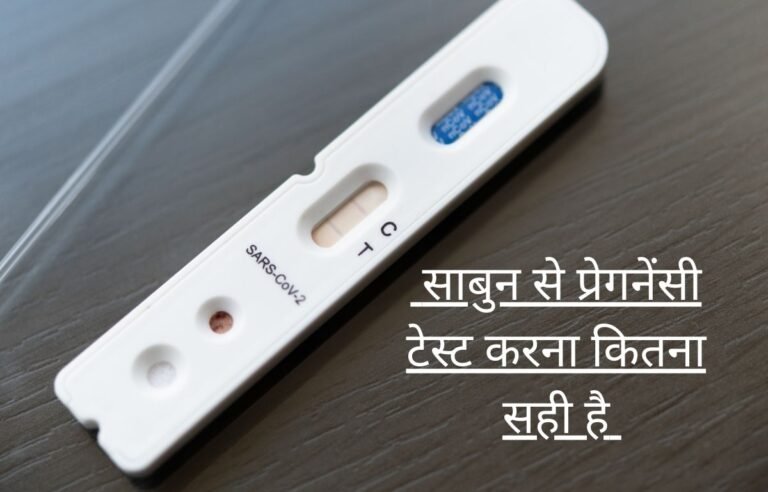Are you eager to know if that little bundle of joy growing inside you is a bouncing baby boy? 🤔 As you enter your 4th month of pregnancy, you might be experiencing a whirlwind of changes and wondering if they’re hinting at your baby’s gender.
From mysterious food cravings to specific physical changes, the 4th month of pregnancy can be filled with intriguing clues about your baby’s gender. But how much truth is there to these supposed “boy symptoms”? 🧐 And what’s really happening with your body and your growing little one during this exciting time?
In this blog post, we’ll dive into the fascinating world of 4th-month pregnancy symptoms, with a special focus on signs that might suggest you’re carrying a boy. We’ll explore the physical changes you may experience, fetal development milestones, and the hormonal influences on your body.

Physical Changes in the 4th Month
As you enter the fourth month of pregnancy, you’ll start to experience more noticeable physical changes. This exciting time marks the beginning of the second trimester, bringing both visible and internal transformations.
Noticeable Baby Bump
During the fourth month, your baby bump will become more prominent. This is an exciting milestone for many expectant mothers, as it’s often the first visible sign of pregnancy for others. Here’s what you can expect:
- Uterus growth: Your uterus will have expanded to about the size of a large grapefruit.
- Waistline changes: You may notice your waistline thickening as your bump grows.
- Maternity clothes: It’s time to consider transitioning to maternity wear for comfort.
Changes in Maternal Body Shape
Your body will undergo various changes to accommodate your growing baby:
| Body Part | Change |
|---|---|
| Breasts | Continued growth and increased sensitivity |
| Skin | Possible darkening of the linea nigra and areolas |
| Weight | Gradual weight gain, typically 1-2 pounds per week |
Increased Fetal Movement
One of the most exciting developments in the fourth month is the increased fetal movement:
- First flutters: You may start to feel your baby’s movements, often described as “quickening.”
- Frequency: Movements will become more frequent as your baby grows and develops.
- Partner involvement: Your partner might even be able to feel the baby’s movements by placing their hand on your belly.
As these physical changes become more apparent, you’ll likely feel a stronger connection to your growing baby boy. The next phase of your pregnancy journey will bring even more exciting developments and preparations.
Fetal Development Milestones
As your pregnancy progresses into the fourth month, your baby boy is experiencing significant developmental milestones. Let’s explore the fascinating changes occurring during this crucial period.
Emerging Sleep-Wake Cycles
By the fourth month, your baby boy is beginning to establish rudimentary sleep-wake cycles. While these patterns are not yet fully developed, they mark an important step in your baby’s neurological development.
- Brain activity increases
- Periods of rest and activity become more distinct
- Baby may respond to external stimuli during wake cycles
Development of Reproductive Organs
This stage is crucial for the formation of your baby boy’s reproductive system:
- Testes continue to descend
- External genitalia become more defined
- Prostate gland begins to develop
Formation of Facial Features
Your baby’s face is becoming more recognizable:
- Eyes move closer together
- Ears reach their final position
- Nasal bridge forms
- Lips become more distinct
Growth in Size and Weight
The fourth month sees rapid growth in your baby boy:
| Aspect | Approximate Measurement |
|---|---|
| Length | 4-5 inches (10-13 cm) |
| Weight | 4-5 ounces (113-142 g) |
During this period, your baby’s body grows faster than the head, giving him more balanced proportions. His skin is still thin and translucent, but fat deposits will soon start to accumulate, giving him a more robust appearance.
As we move forward, we’ll explore how these developmental changes can influence your body and emotions during this exciting time of your pregnancy

Potential Signs of Carrying a Boy
Now that we’ve explored the general physical changes and fetal development milestones in the fourth month of pregnancy, let’s dive into some potential signs that might suggest you’re carrying a boy. While these signs are not scientifically proven and should be taken with a grain of salt, many women report experiencing them during pregnancies with male fetuses.
Heart Rate Patterns
One popular theory suggests that male fetuses tend to have lower heart rates compared to female fetuses. While this isn’t a definitive indicator, some studies have shown a slight correlation:
| Fetal Heart Rate | Potential Gender |
|---|---|
| Below 140 bpm | More likely a boy |
| Above 140 bpm | More likely a girl |
Remember, this is not a foolproof method and should not be used as a substitute for medical gender determination techniques.
Food Cravings and Aversions
Pregnancy cravings are common, but some believe that the type of cravings may hint at the baby’s gender:
- Salty or savory cravings: Often associated with carrying a boy
- Sweet cravings: More commonly linked to carrying a girl
Additionally, some women report experiencing fewer food aversions when carrying boys compared to girls.
Skin Changes and Acne
Hormonal changes during pregnancy can affect your skin. Some mothers-to-be notice:
- Increased acne when carrying a boy
- A “pregnancy glow” more often associated with carrying girls
Shape and Position of the Bump
The shape and position of your baby bump have long been used as old wives’ tales to predict gender:
- Carrying low and out front: Often associated with boys
- Carrying high and wide: More commonly linked to girls
It’s important to note that bump shape is more likely influenced by factors such as muscle tone, body type, and the position of the baby rather than gender.
While these signs can be fun to consider, remember that the only reliable ways to determine your baby’s gender are through medical methods like ultrasound or genetic testing. Next, we’ll explore how hormonal changes during pregnancy might affect your body differently when carrying a boy.
Hormonal Influences on Mother’s Body
During the fourth month of pregnancy, hormonal changes significantly impact a mother’s body, especially when carrying a boy. These hormonal shifts can lead to various physical and emotional experiences.
Mood Swings and Emotional Changes
Hormonal fluctuations during pregnancy can cause mood swings and emotional changes. When carrying a boy, some mothers may experience:
- Increased irritability
- Heightened anxiety
- Sudden bursts of happiness or sadness
- Difficulty concentrating
It’s important to note that these emotional changes are normal and temporary. Here’s a comparison of common emotional experiences:
| Emotion | Frequency | Intensity |
|---|---|---|
| Joy | High | Moderate |
| Anxiety | Moderate | High |
| Sadness | Low | Variable |
Increased Energy Levels
Many women carrying boys report experiencing a surge in energy during the fourth month of pregnancy. This boost can be attributed to:
- Rising testosterone levels from the male fetus
- Increased blood flow and metabolism
- Hormonal changes supporting fetal growth
Mothers may find themselves:
- Feeling more motivated to tackle projects
- Experiencing improved focus and concentration
- Having a desire to engage in physical activities
While these increased energy levels can be beneficial, it’s crucial for expectant mothers to balance activity with adequate rest. As we move forward, we’ll explore how to prepare for the arrival of a baby boy, considering these hormonal influences and their effects on the mother’s body.
Preparing for a Boy
Now that you’re aware of the potential signs and hormonal influences, it’s time to start preparing for your baby boy. This exciting phase involves several important considerations, including choosing a name and exploring genetic testing options.
Choosing Boy-Specific Names
Selecting a name for your baby boy is one of the most personal and meaningful decisions you’ll make during your pregnancy. Here are some tips to help you choose the perfect name:
- Consider family traditions
- Explore cultural significance
- Look into name meanings
- Think about potential nicknames
- Check name popularity trends
| Name Origin | Example Names | Meaning |
|---|---|---|
| Hebrew | Ethan, Noah | Strong, peaceful |
| Greek | Alexander, Theodore | Defender, gift of God |
| Latin | Julian, Marcus | Youthful, warlike |
| Celtic | Aidan, Brennan | Fiery, descendant of the sad one |
Genetic Testing and Screening Options
As you prepare for your baby boy, it’s essential to consider genetic testing and screening options. These tests can provide valuable information about your baby’s health and development:
- Non-invasive prenatal testing (NIPT): A blood test that screens for chromosomal abnormalities
- Chorionic villus sampling (CVS): A diagnostic test that detects genetic disorders
- Amniocentesis: A procedure that tests for genetic and chromosomal conditions
Discuss these options with your healthcare provider to determine which tests are appropriate for you and your baby. Remember, genetic testing is a personal choice, and it’s important to weigh the benefits and potential risks before making a decision.
As you move forward in your pregnancy journey, consider creating a birth plan that reflects your preferences and prepares you for the arrival of your baby boy.
Conclusion
Whether you’re experiencing potential signs of carrying a boy or not, the most crucial aspect is maintaining a healthy pregnancy. Focus on proper nutrition, regular prenatal check-ups, and preparing your home and heart for your new arrival. Remember, regardless of your baby’s gender, the journey of pregnancy and parenthood is filled with joy, challenges, and incredible moments that will shape your life in wonderful ways.






